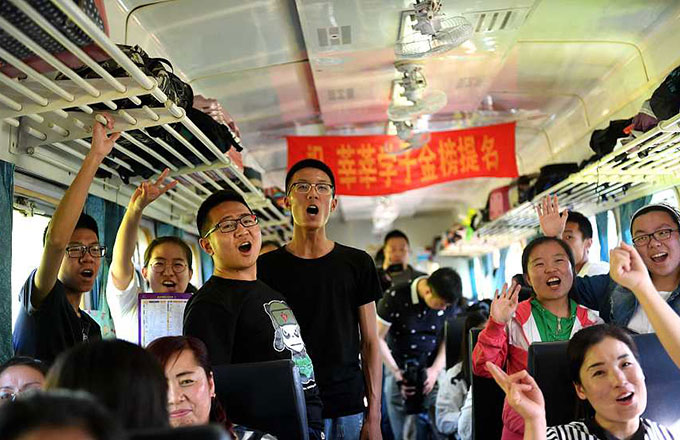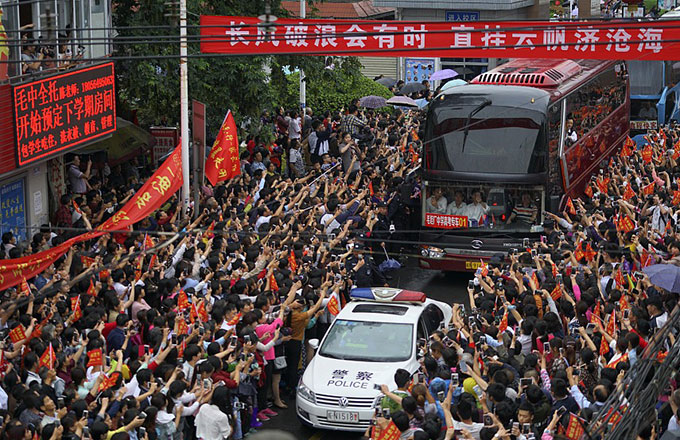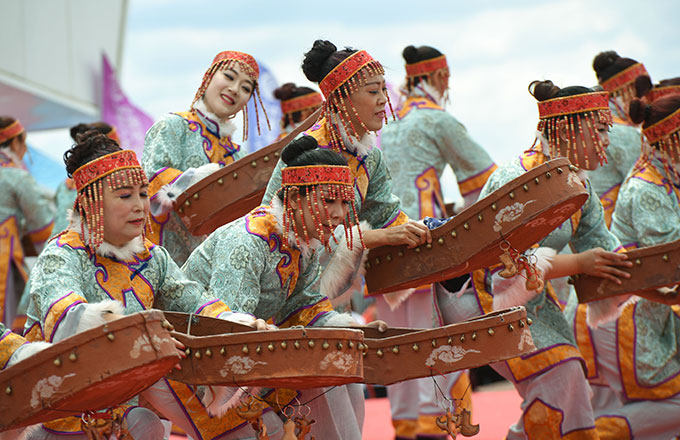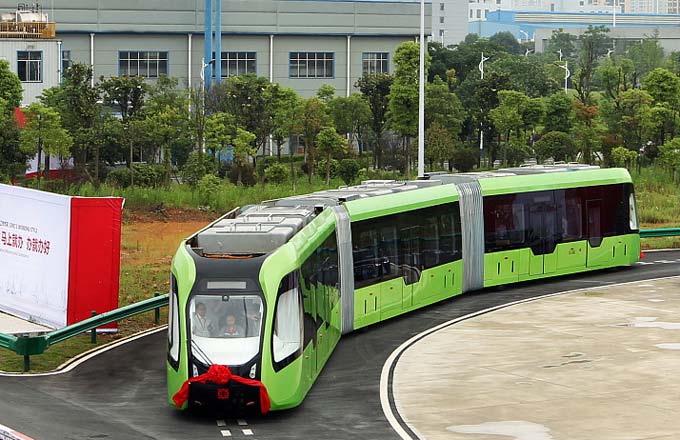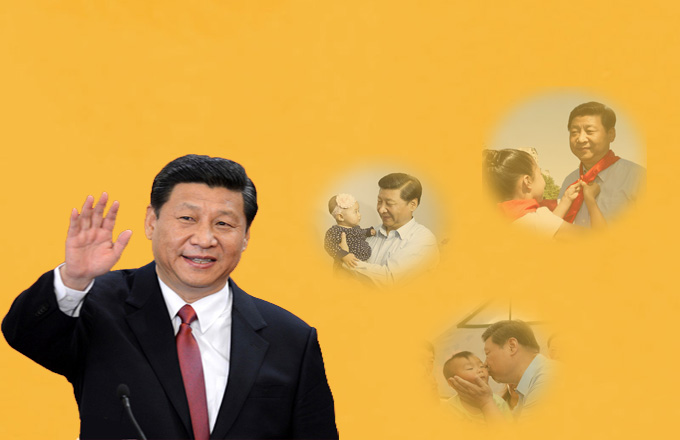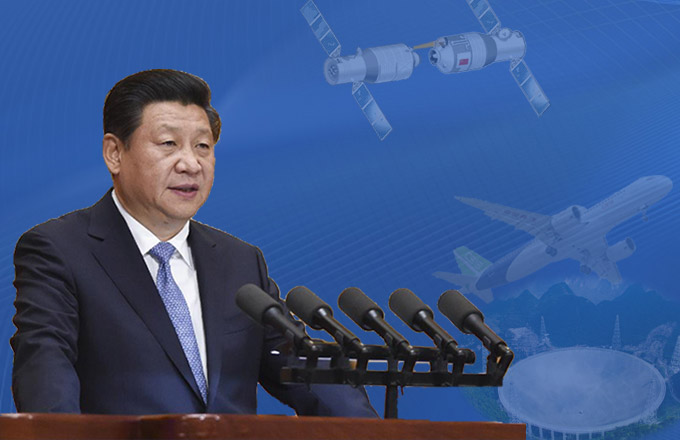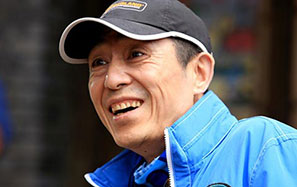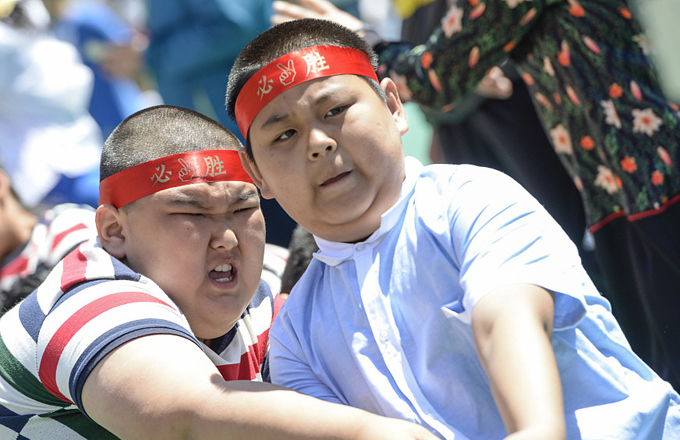Prospective environment chief makes debut
The official who is widely expected to become the country's new environmental minister highlighted China's continuous efforts in combating pollution in the air, water and soil at an international summit on Monday, World Environment Day.
Li Ganjie, 53, made his debut at the opening of the International Summit of New Environmental Protection Technology in Nanjing, capital of Jiangsu province.
Li was named Party chief of the Ministry of Environmental Protection on Wednesday, after his predecessor, Chen Jining, became Beijing's acting mayor. The Party post would make him a likely choice for the ministerial role.
Li highlighted the latest data from the ministry showing improvements, with 338 cities reporting an increase in days with good air quality and blue skies last year.
In those cities in 2016, 78.8 percent of the days had air quality better than the national standard, an average increase of 2.1 percentage points over 2015, the annual China Environmental Statement released on Monday showed.
Air quality is considered good when the index measuring various pollutants stands at 100 or less.
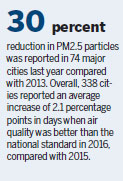
Seventy-four major cities that have been monitored and assessed using stricter air quality standards since 2013 also showed improvement. An average of 74.2 percent of days in 2016 had good air quality, 13.7 percentage points higher than the level in 2013, according to the annual statement.
"The concentration of PM2.5 was lowered by 30 percent last year compared with the level in 2013," Li said. Fine particulate matter classified as PM2.5, with diameter of 2.5 microns, is particularly hazardous to human health.
But Li also conceded that there is a conflict between environmental protection and economic growth, and in many regions, the emission of pollutants is approaching or has exceeded the ability of the environment to disperse or otherwise mitigate its effects.
The ministry and the Jiangsu provincial government are jointly hosting the summit, which runs through Tuesday.
Li worked in the ministry for about 16 years and was vice-minister of environmental protection between 2008 and October, when he was named deputy Party chief of Hebei province.
An appointment as minister usually requires approval from the National People's Congress, the top legislative body. The next meeting of the body's standing committee is scheduled for late this month.
Chen's new post as acting Beijing mayor also has attracted attention, given the air pollution and other environmental issues that the capital faces.
"In the Beijing-Tianjin-Hebei region, tackling the pollution, especially air pollution, has become the priority, beyond other issues like traffic congestion, which could make it a priority for the new mayor as well as the new environment minister," said Ye Tanglin, a researcher in regional integration at the Capital University of Economics and Business.
The government has set a goal to lower the average PM2.5 concentration to 60 micrograms per cubic meter by the end of 2017 in Beijing. Last year, it was 73, making it a challenging goal, according to environment experts and the ministry.
Water pollution and water shortages in the Beijing-Tianjin-Hebei region also will pose challenges for the new environmental minister, Ye said.
Dong Zhanfeng, deputy head of environmental policy department at the Chinese Academy for Environmental Planning, the ministry's think tank, said the severe water pollution, especially in the-Beijing-Tianjin-Hebei region, is a reality.
Dong said the ministry could do more in this regard, and more regional cooperation is needed to tackle pollution in bodies of water like the Haihe River, which runs through the region.




